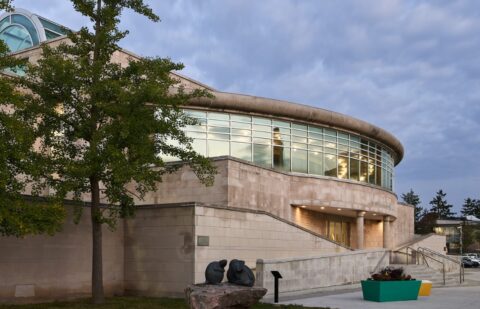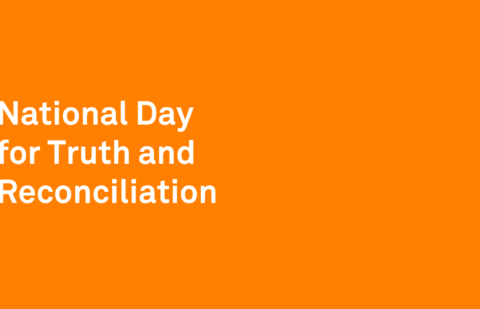On the National Day for Truth and Reconciliation, the Robert McLaughlin Gallery joins communities across Canada in honouring Survivors, their families, and Indigenous communities. Recognizing the history and legacy of residential schools is essential to reconciliation, and for cultural institutions, it also brings new responsibilities: reshaping narratives, creating space for Indigenous voices, and working toward more equitable futures.
At the RMG, we believe in the power of experience. Every exhibition, program, and gathering we create is designed to bring people into meaningful encounters with art and culture. On September 30, we are turning that same value inward. The gallery will be closed so our non-Indigenous staff can come together for a day of learning. Sharing experiences that will help us identify opportunities for growth and deepen our understanding of how to approach this work with more care and responsibility.
Last year, we focused on the Calls to Action directed at museums in the Truth and Reconciliation Commission’s report. While some recommendations were written with institutions holding Indigenous cultural property in mind, we recognized the importance of aligning our own practices. Over the past three years, our curatorial team has been actively reshaping policy and practice to create space for more equitable approaches to collecting, interpretation, and representation. These steps are part of an ongoing process, not an endpoint.
Marking this day reminds us that reconciliation is an ongoing process, not limited to a single date on the calendar. It requires continuous effort across our organization’s systems and structures. We encourage our community to explore opportunities for local learning, whether through libraries and museums to deepen understanding of the histories of these lands, or by participating respectfully in Indigenous-led gatherings that share contemporary perspectives, responsibilities, and visions for the future.
As a colonial institution, we recognize the responsibility we have to address inequities that have shaped our history and continue to influence our present. Observing this day is one action; ensuring that Indigenous voices are embedded into our programs, policies, and decision-making is a commitment that must be upheld throughout the year.
Take care,
Alix Voz, CEO


